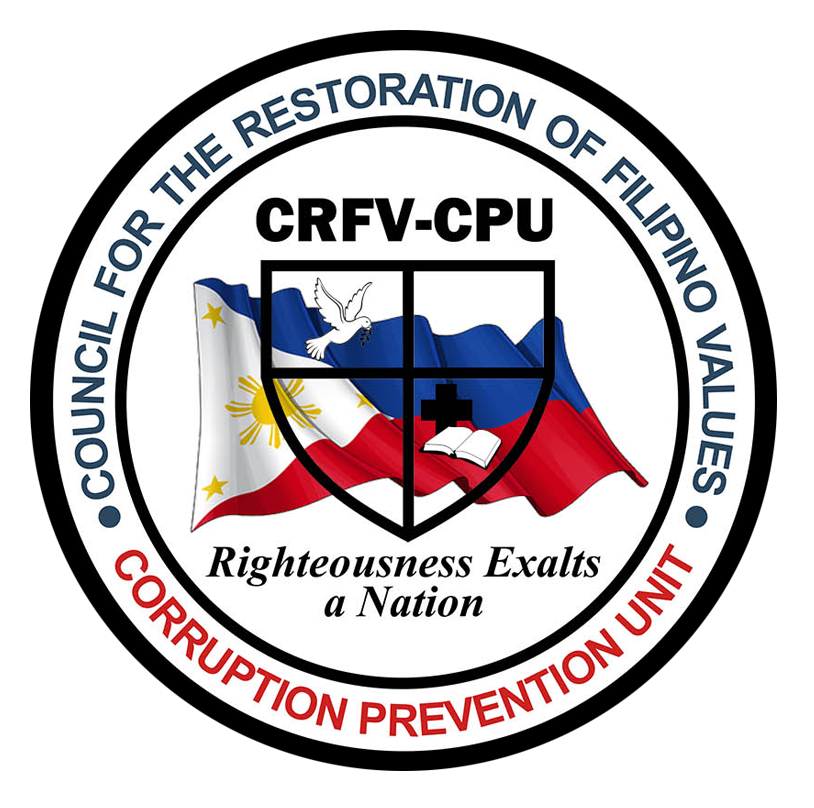|
by: Ame-Phil O. Saquiban  Justice is giving what is due to whom it is due. It involves the observance of the principle of fairness, particularly in terms of rights, privileges, opportunities, and treatment. When the award is given to the deserving and penalty is imposed upon the duly convicted, we can say that justice is served. Justice is the measurement of a civilized society so any violation of human rights without the observance of due process is a denial of justice. How do we translate this to the workplace context, especially in the day-to-day discharge of our duties and responsibilities in public service where proper procedures and fair play need to be observed? For instance, in an open bidding, a project should be awarded to the lowest bidder upon review of the eligibility requirements, and all interested proponents should have equal opportunity to bid. The same ethical practice should be observed in issuing permits, licenses, or any similar document. Concerning promotion, everyone vying for the desired position should go through the merit system rather than promoting someone out of political friendship or any undue maneuvering. It is time for us to be awakened. The promising future of this nation is sometimes undermined by countless injustices of all sorts notwithstanding the existence of deterring laws. Republic Act 3019 is extant in its provisions. The law considered the act of causing any undue injury to any party, including the Government, or giving any private party any unwarranted benefits, advantage, or preference in the discharge of official administrative or judicial functions through manifest partiality, evident bad faith or gross inexcusable negligence as corrupt and unlawful. Also, it is considered corrupt and unlawful to neglect or refuse, after due demand or request, without sufficient justification, to act within a reasonable time on any matter pending before a public official or employee… to favor his or her interest or give undue advantage in favor of or discriminating against any other interested party (words supplied). Any violation of these provisions of the law can be concluded as an act of injustice because of giving undue favor to the undeserving and denying service to someone because of discrimination. Let us take a moment to reflect on whether we have shortchanged the public, clients, taxpayers, subordinates, and superiors in any way in the past. Have we ensured that the delivery of our programs, projects, and activities were of the highest standards? Resolve in our hearts today to uphold justice at all times, both in big and small ways, just as what is expected of us by the Almighty God – to act justly, to love mercy and to walk humbly with our God. Let us then rally for justice in our country to effect significant progress. Justice is the foundation of our sovereignty. If we are to build a just and humane society and establish a government that shall embody our ideals and aspirations, it should be under the regime of justice. Philippines is a formidable country if justice is served.
0 Comments
by: Micah A. Tecne Let us commemorate our nation's Independence Day, when the Philippines was finally declared free from the colony of other countries. There is glory in acquiring freedom from oppression, a time when our nation began to move and live freely, unbothered by limitations. The feeling of being free grants us a life of joy and peace. We can sleep soundly and safely. What a liberty!
Freedom is a gift for us, both as a nation and as individuals. But what if, amidst our celebration, we realize its deeper meaning? Let us take a moment to pause and reflect. Are we truly free from within? We may seem peaceful and free on the outside, but deep down, we crumble, and our inner selves yearn for absolute freedom! Have you ever felt trapped, even while moving freely in the physical world? Deep inside, we can feel imprisoned by many internal battles in our minds and hearts. We struggle with sleeplessness and unease, haunted by past traumas, regrets, mistakes, or burdens. We appear free, but we know we are not. We conform in a world of pretense and cover-ups, yet our conscience reminds us that true freedom remains elusive. As David O. McKay said, "Life's greatest battles are fought within the silent chambers of the mind." When battles rage inside, chaos erupts, and eventually, we cry out for genuine freedom! Freedom from the oppression of bitterness, regrets, traumas, fear, guilt, and every negativity the enemy of our soul, Satan, may be launching and planting in us. The oppression intensifies as the battle lingers, leading to a desperate cry for liberation. We find ourselves in an exhausting situation, pushing all our known efforts and measures to break free. Have we ever found ourselves feeling hopeless and frustrated that the battle within remains relentless despite our silent struggle? We grow weary of the chaos within. It's been too long; days, months, and years have passed, yet we still feel chained and in bondage. To truly enjoy the gift of freedom, we need to decide to fight not alone, but together. In our battle for freedom, we need the support of others, and we need the ultimate source of it. We have fought for liberty alone for far too long; now is the time to fight together. Our authentic and ultimate freedom is not attained by our own might, but by the might of the Almighty. "Now the Lord is Spirit, and where the Spirit of the Lord is, there is freedom." by: Nathaniel A. Saquiban The nation of the Philippines is an archipelagic country composed of 7,641 islands based on the new count of National Mapping and Resource Information Authority. It consists of 112 ethnolinguistic groups who comprise nearly 15% of the total population of the country according to a case study made by David E. De Vera, Executive Director of Philippine Association of Intercultural Development Inc. These facts show our diversity in many aspects such as, among others, cultures, traditions, beliefs, practices, customs, and dialects. Despite of all these, we are one nation under God. We work together as one and we care for one another. We still embody the Bayanihan spirit by helping one another most especially in times of calamity or disaster, without expecting anything in return. Besides, there are intermarriages among different tribes and ethnic groups.
The above is what we are known for. It is who we really are. It is our nature. It is our foundational trait. However, our distinct and admirable characteristic is marred by the social ill of division and factionalism due to political partisanship and other contributory factors. Sometimes, either in local or national scenario, those in the present administration does not support those who were in opposition. As a result, there are regional maldevelopment or underdevelopment and unequal distribution of wealth. There is lack of development in the countryside while there is too much industrialization in cities. Thus, there is too much congestion in highly urbanized areas due to increasing population and heavy traffic condition. Let us therefore bridge this gap and uphold the value of interdependence. We are like one body of different parts that are dependent to one another. As the Scriptures have said, “…the eye cannot say to the hand, ‘I have no need of you’; nor again the head to the feet, ‘I have no need of you.’” The same is true with us, an Ilocano cannot say to the Ilonggo, “I have no need of you” or a Cebuano cannot say to an Ibanag, “I have no need of you”. We all need one another, and we must work together for the good of our country. In an office or agency, the same principle applies. Let us note that even before we express our dependency on one another, we are already made interdependent by our work. Most of our duties are interdependent. A task needs to be accomplished first before another task can be done. In so doing, we are forced to coordinate and collaborate. We should therefore duly consider our colleagues whose tasks are dependent on our accomplishments. We do our part diligently so that they may not also be unduly restrained, and the public will not also be denied services that should be extended promptly and adequately. In like manner in a bigger picture particularly sharing of resources in the country. There should be a sharing of resources among different geographical areas to realize a wider range of development. Selfishness is not our trait. Massive distribution of wealth, skills, knowledge, and expertise should be our constant practice. Without interdependence, there will be a delay in the delivery of social services. There will always be somebody who will be put to disadvantaged. Far be it from us. “Kapit bisig tayo; tayo ay Filipino”. by; Ame-Phil O. Saquiban What makes it difficult to fully acknowledge one’s limitations or mistakes, be willing to accept the help offered, and be generous in giving genuine appreciation to others? How challenging it can be sometimes to welcome feedback, criticisms, or suggestions for improvement as well as bright ideas from others. What worries us the most to consider others betters than ourselves? These are some of the areas that we can start reflecting on if we are to commit to growing in humility.
While the concept of humility is sometimes perceived as a sign of weakness when assumed that it is about having a poor opinion of oneself, low self-esteem, or a display of vulnerability, being humble is a strength and a powerful trait of a leader or any person of influence. Studies in recent years reveal that leading with integrity inspires collaboration, better job performance, and employee engagement. Humility makes a person willing to see oneself accurately (strengths and weaknesses), be receptive to feedback, and learn from others (Owens, et al., 2013). Embracing humility keeps us grounded regardless of the accolades we have or have not received or the successes we have achieved or have yet to achieve for humility is “characterized by a low focus on the self, an accurate (not over or underestimated) sense of one’s accomplishments and worth, and an acknowledgment of one’s limitations, imperfections, mistakes, gaps in knowledge, and so on” (APA Dictionary of Psychology). It guards us from falling into the pit of pride and arrogance, as well as from feeling inferior. Albert Einstein once said, “The more I learn, the more I realize how much I don’t know.” This simple yet profound statement reflects the humility of a person known for his brilliance. This reminds us of a proverb that states, “With humility comes wisdom” (Proverbs 11:2). From a position of teachability that is void of self-glory, we can produce new and innovative ideas, come up with wise decisions, and sincerely address issues and concerns that derail progress and development around us. Growing in humility leads to never-ending learning in all facets of life, including public service. Let us build one another in a way that acknowledging one’s limitations or mistakes will no longer be difficult, constructive feedback will be welcomed, the sharing of ideas and genuine appreciation will be encouraged, and esteeming others better than ourselves will be a norm. By doing so, we grow in divine wisdom. Jesus V. Sison, PTRP CRFV, Deputy National Director "I say to you, if you have faith as a mustard seed, you will say to this mountain, 'Move from here to there,' and it will move, and nothing will be impossible for you."
We have raging battles before our very eyes. Different types of battles threaten our innermost being and affect our surroundings. Battles such as compromised physical health, sickness, and diseases; social illnesses and geopolitical issues; spiritual, mental, and emotional battles such as sin, temptations, mental health problems, depression, and the like take a toll on us as if the heart even of the fiercest warrior is taken away. Stakes are so high that battles become so furious and daunting. Seemingly, we are overwhelmed that winning is not a near possibility. Aren't we facing such things as we go on as Values Restoration Officers, values advocates, statesmen/stateswomen, nation builders, and accountability partners? We experience them as members of a family and society. We have silent cries and unfathomable groans when facing work and life. Saint Paul was so aware of these struggles that he himself cried about how wretched a man he was. Faced with trials, temptations, and several battles, aren't we ever more mindful of our need for inner strength and unbreakable will from within to provide tremendous power to overcome? Are we not all the more prompted to be steadfast with our unbounded belief that all battles are winnable and things will become better? As the days go by and perilous times pass, our deep convictions are challenged, and wickedness seems to be increasing all around us. Chaos and confusion continuously try to reign in our society. Should we be stirred to call and connect to God with the tremendous urgent clamor for Himself to be known and be known? We will only know the Almighty God to be in control and is at work through the eyes of faith. If we are to look beyond the mountains of trials and burdens to seek help, it will be through a heart full of faith. Faith makes us immovable while we move mountains. It connects us to the Divine Creator so that we can start to resource ourselves with His strength, power, wisdom, and might. Even though we don't see or feel Him working in the presence of imminent danger or impossible task, with faith, we are assured that all will be well. Faith guarantees that God, in His goodness and mercy, will never give us more than we can handle. Instead, we receive His strength, which is made perfect during times of weakness. With faith, we experience His power at work in us. We also experience His great mercy in our stillness and quietness, and He gives us many moments of pause and relief from the battle. Our connection with Him brings comfort and peace, refreshing and restoration, redemption and triumph. Faith will help us approach His throne of grace. In His house, we can lift prayers just like the King of Judah declared while being threatened by enemies: "O Lord God of our fathers, are You, not God in heaven, and do You not rule over all the kingdoms of the nations, and in Your hand is there not power and might, so that no one can withstand You? Are You not our God, who drove out the inhabitants of this land before Your people, Israel, and gave it to the descendants of Abraham, Your friend forever?" The king could pray boldly because his faith revealed who God was. He further continued, "And they dwell in it, and have built You a sanctuary in it for Your name, saying, 'If disaster comes upon us—sword, judgment, pestilence, or famine—we will stand before this temple and in Your presence for Your name is in this temple, and cry out to You in our affliction, and You will hear and save.' And now, here they are, rewarding us by coming to throw us out of Your possession, which You have given us to inherit. O our God, will You not judge them? For we have no power against this great multitude that is coming against us; nor do we know what to do, but our eyes are upon You." According to his faith, God responded and saved them. This historic event showed us an example and delivered a clear message that God can save, protect, and redeem as long as we act on faith within us. "Finally, be strong in the Lord and the power of His might." Let us continue to "Fight the good fight of faith, lay hold on eternal life, to which you were also called and have confessed the good confession in the presence of many witnesses." Faith in God through Jesus Christ can move mountains and cause us to overcome. Fear not but have faith. by: Carolina Lim-Gamban Our topic for this week is timely, as the nation is confronting challenges related to faithfulness. Faithfulness involves loyalty, fidelity, or steadfastness to your affection or allegiance. It touches on a wide range of issues in life that we need to revisit and reflect on and carefully realign and readjust ourselves before it is too late to act.
Faithfulness to our beloved country. In the 1973 Philippine Constitution, Section 1 of Article V provides that "It shall be the duty of the citizen to be loyal to the Republic and to honor the Philippine flag, to defend the State and contribute to its development and welfare, to uphold the Constitution and obey the laws, and to cooperate with the duly constituted authorities in the attainment and preservation of a just and orderly society." Sadly, this provision no longer appeared in the 1987 Philippine Constitution. This, however, should not stop us citizens from being loyal to our country nor hinder us from loving and defending the State from aliens and oppressors who are trying to invade or take away what is ours. Grab every opportunity to show your love and loyalty to our nation – this is our faithfulness to our beloved country. Help her rise, boom, and bloom to be the nation that God has designed it to be. Protect her, nourish her, and take care of her. Do not hand her over to another for a bowl of soup. Faithfulness to our spouses and relationships. Fidelity is important in lasting relationships. Strengthening faithfulness is needed to see fewer broken families and relationships. When spouses, partners, or friends are faithful to each other, no storm is too strong for them because both can be a source of strength, encouragement, and inspiration. Resisting any temptation or how it will affect you is a choice one must make consciously. It measures how deep your love, respect, and honor for your spouse or partner. Faithfulness to the Almighty God "Know therefore that the Lord your God is God; he is the faithful God, keeping his covenant of love to a thousand generations of those who love him and keep his commandments." Our God is ever faithful and never changed in His faithfulness to us. His love and devotion to us are demonstrated by how He was willing to sacrifice the one He loved to redeem us from our iniquities, sins, unfaithfulness, and brokenness, once and for all. Time and time again, He is willing to wait for the renewing of our minds and for us to grow into maturity, for our sakes, so that we can experience the life He designed for us. What does He require of us? To be faithful to our Almighty God and not to worship any other gods. To love Him with all our hearts, souls, and minds, and to love our neighbor as ourselves. "Let love and faithfulness never leave you; bind them around your neck, write them on the tablet of your heart. Then you will win favor and a good name in the sight of God and man." Purity should be duly considered in all human endeavors. A pure person has an excellent spirit or nature and is guaranteed that all the work done by their hands is organized and carried out smoothly. One reason is that they are focused, thereby ensuring success. On the contrary, an impure person is double-minded and has a disturbed emotion because of a hidden motive or agenda. Their tasks are frequently haphazard because of the damaging nature within. This is why if we are to know a person, we will know them by their fruits.
Typically, contamination starts in the mind. When we have impure thoughts, it alters our frequency, which eventually affects our actions. Thus, we need to guard our thoughts. As Mahatma Gandhi says, our thoughts become our words; our words become our actions; our actions become our habits; our habits become our values, and our values become our destiny. In line with this, the Scripture tells us that whatever is true, noble, right, pure, lovely, or admirable, if anything is excellent or praiseworthy, we should think about such things. Other than thoughts, impurities can also happen because of the negative motive or intention of the heart. This makes intent an essential element for conviction in criminal offenses. A person is penalized because of their evil intention, which propelled them to do a specific appalling act. By determining the purpose, a person is known because it speaks of their characteristic. By purity, we can be transparent because we have nothing to hide. Just like a body of crystal-clear water, we can see what the surface of the water is underneath. In the same way, people see us beyond our outside appearance and become a message to them. Also, we can become like a drink offered to others, and they will not get poisoned. Every word we say to people can create a significant impact, and those who listen to us will drink from us. It is essential, therefore, to be pure in heart because whatever we speak will become a life to others. They are like drinking from us as we speak. Let us do away then from all sorts of impurities. Let us not keep bitterness within us because it will destroy our bodies. Note that it is not what goes into the mouth that makes a person unclean and defiled; what comes out makes a person unclean and defiled. Let us, therefore, make purity our goal because it will open the doors of blessing to us due to trustworthiness. If we become trustworthy with little things because of purity, we will be trusted with much more. We get promoted at work and may be assigned to handle sensitive and confidential matters. by: Dr. Laurence C. Mascay Righteousness is essential when it comes to government service. It acts as a compass, directing the choices and deeds of individuals, especially those assigned to leadership positions. Righteousness, based on moral character and ethical behavior, is a lighthouse that illuminates the way to a just government and peaceful society.
In the Scripture, righteousness is pursuing goodness, fairness, and morality in all facets of one's life. It explores issues of conscience and character and follows laws and regulations. Maintaining what is reasonable and moral in the face of difficulties and temptations means being righteous. "Blessed are those who hunger and thirst for righteousness, for they will be filled," says the apostle Matthew. Righteousness is essential to ensure justice, equity, and honesty in government service. Righteous leaders and public servants put the welfare of their people before their interests or the interests of politics. To establish a society where every person is treated with respect and dignity, righteous public servants base their decisions on justice and compassion. Despite its significance, righteousness in governance frequently encounters obstacles and temptations. Even the most well-meaning leaders and public servants can have their integrity tested by the desire for power, the temptation to sacrifice morality for convenience, and the temptation to engage in corruption. However, at these trying times, the dedication to righteousness must not waver. It takes guts to stand up to injustice, humility to own up to your mistakes, and a commitment to putting the public interest first above everything else. People in the government and private service fulfill their obligation to advance justice, equality, and the general welfare by adopting righteousness. In implication, may you always aim to do righteous acts in the eyes of God and before people, and may the ageless wisdom of the Scriptures guide you as you go through the complexities of public service. Remember, as Dr. Laurence Mascay, one of CRVF's speakers and facilitators, says: "You may be mistreated, but live righteously, and you will emerge victoriously." by: Micah A. Tecne Who doesn't love light, righteousness, and good to rule every day? We want to see good things happen in our lives. We desire to be always righteous, but the sad reality is that we live in a world full of chances to compromise. The struggle of bearing our sinful nature sinks in when we fall into sin and get attached to any form of wickedness that leads us to suffer destructive consequences, find ourselves condemned, and be regretful of our mistakes. We suffer the torture of condemnation from people around us, and worst is the soreness of our self-condemnation.
As we find guilty, people convicted of their crime receive their judgment from a court hearing, which makes us reflect on the dire effect of one's wrong choices and actions. We cannot deny that we get so lax that we are safe from judgment if we don't get caught in our wicked actions and sins. As St. Paul once said, God cannot be mocked; a man reaps what He sows, we will bear the consequences of our sins if not today; it will come in time if we fail to realize the greatness of our wicked actions and repent of our sins. We respond differently when we are caught in our sins. Some of us rationalize our wrongdoings to protect ourselves from being judged. Some hide and leave the life of a runaway and are afraid to suffer the consequences that await us. Others tend to do things to cover the sin and pretend innocent to be acquitted. Some of us acknowledge our faults but are unwilling to do anything about them. Others humbly admit wrongs and are willing to go through the restoration process and try to correct them. As we commemorate the crucifixion and resurrection of Jesus Christ, let it be a time for us to reflect the real meaning of repentance. Our sins indeed have consequences. The consequences of suffering in all aspects. We are afraid of acknowledging and admitting our faults because we don’t want to go through a painful and even long process of restoration. The process of going through a lot of pruning to make as new again. Both Judas and Peter, who were with Jesus, betrayed Him. Judas turned innocent Jesus to be imprisoned and received a lot of pay from the Pharisees, while Peter denied himself as one of Jesus' disciples. Both of them felt guilty but repented in different ways. Judas hanged himself because of guilt, while Peter went back to where he was until Jesus restored him after His resurrection and became faithful to the end of his life. Every day is a struggle between light and darkness, righteousness, and wickedness, good and bad. We struggle to be always righteous, and we find ourselves falling into sin. Because of our guilt, we tend to condemn ourselves and repent the wrong way, destroying our lives. True repentance is not doing another sin to correct the sin; it is an action. It is not only a word being uttered that we are sorry. It happens when we realize our fault, its dreadful impact on us and others, and how it displeases the Almighty God, who sees all things. Our realization will cause us to acknowledge and admit our wrongs and do something about them. We start to make the necessary changes to correct our wrongs. True repentance brings us hope that there is still a chance for us to be restored. An opportunity to turn our wicked past into a righteous present and future. It is a gift that Jesus had on His mind when He died on the cross and was resurrected. As St. Paul said, there is no condemnation for those in Christ Jesus. A psalmist once said, A broken and a contrite heart, O God, You will not despise. by: Keren May B. Busaing In this age where the plight for 'equality' is intense, the value of submissiveness is among those raised into question, and many have taken it out of proportion. For many liberal believers of equality, being submissive is a weakness and a character that needs to be eradicated in favor of independence. Many approach this social issue with zeal and boldness, all wanting to advocate the full extent of self-dependency, which, along the way, counters the discipline of being submissive. Causes like gender equality, women empowerment, social inclusion, and discrimination are a few advocacies that may wholly or slightly eradicate submissiveness. A British film director once said, "To be feminist doesn't mean you can't be submissive." In other words, our consciousness or confidence of being strong and independent isn't dwindled by the value of submissiveness. In fact, to those who are truly secure in their identity, restraining themselves from constantly asserting their positions is strength. The nature of submissiveness is not always dictated by whether we are right or wrong, and being right only sometimes means that we need to fight for it until the end. The strength in submissiveness comes when we back down and give way to the other party - for couples, the wife to her husband; for structural authority, the subordinate to their superior. Strength is only sometimes expressed by being loud and contentious. Whenever we submit, it doesn't mean that we are backing down from what is right. There are other avenues to stand up for what is right, and it begins when we make the choice (which is a strength) to preserve peace through submission. A peaceful atmosphere is perfect for the seed of righteousness to sprout. By being wise, we will eventually realize that the value of submissiveness characterized by humility is a strategy. It is not a power play where one will emerge as the winner. Being able to submit is an inner strength where an individual can demonstrate growth and maturity by seeing every situation beyond the now. It is an ability centered on security, confidence, and leadership. Submissiveness is inner warfare, and whenever we struggle and feel the desire to win, it lets us choose to be strong by being able to back down. It is always the one who can subdue his inner desires who can make the difference. It is always the one who is not particular about winning that is the real winner. On the other hand, those who are contentious are always loud and seeking to win or be above the others who are missing out. Whether we are young and must submit to the elders, a wife and must submit to the husband, or subordinates submitting to superiors, let us choose to do so and always. Saint Paul, in his letter to the Romans, said, "Let every soul be subject to the governing authorities. For there is no authority except from God, and the authorities that exist are appointed by God." This principle is not contrary to the equality, equity, dignity, inclusion, and diversity advocacies we encounter these days. Instead, it is a foundational material that is necessary to address them. By fulfilling the ways and patterns of God, these issues are resolved by the ways of God. Submissiveness is a command that paves the way for Him to directly take control of every situation we are in. It is part of the pattern to success, and every rebellion (against authorities) causes delay and sometimes eliminates God's power to take over. Let us choose to be strong by being able to submit. |
CRFV Winning TeamA company of men and women who have committed their lives to the cause of national transformation. Archives
July 2024
Categories
All
|
Our Services |
Our Organization |
SupportSupport Page
FAQ Terms of Use |
Copyright © 2015 | Baguio City, Philippines 2000 | 074-424-1497 | [email protected]





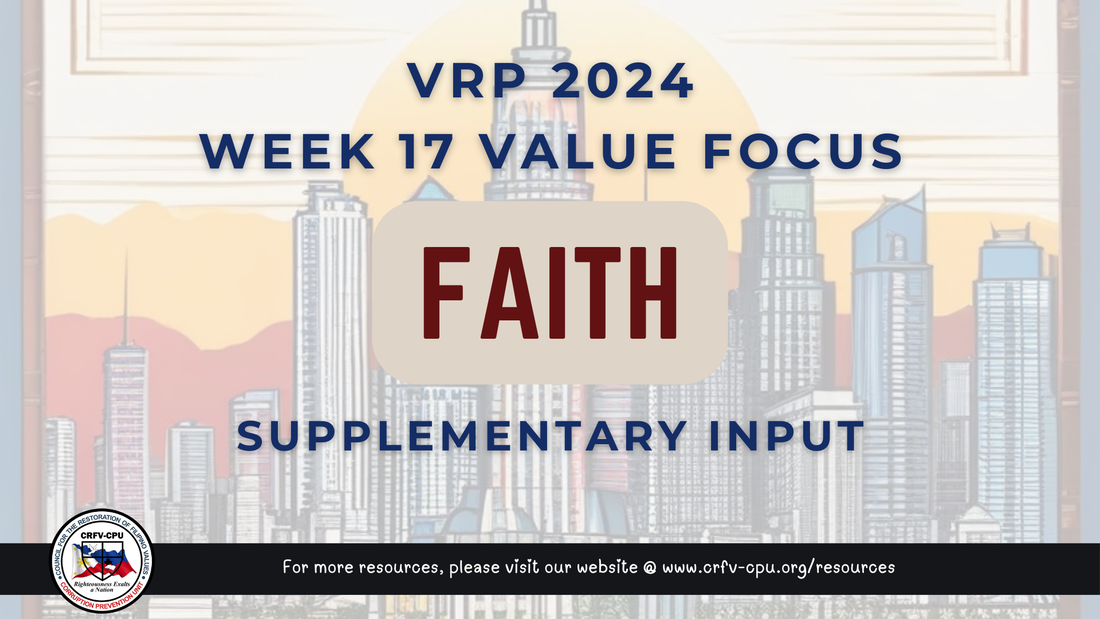
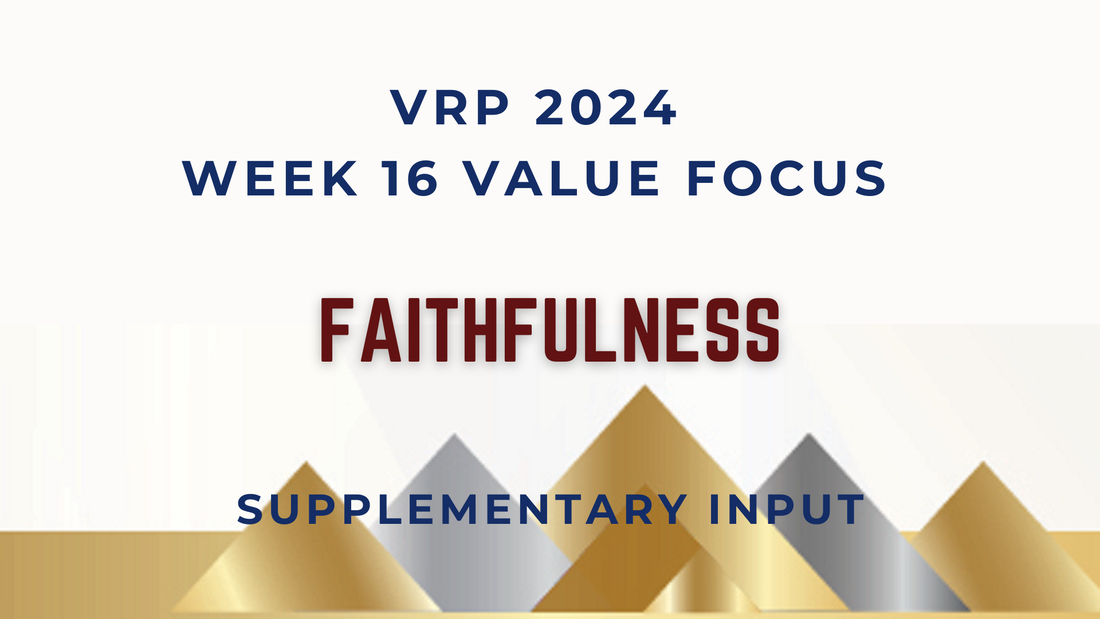
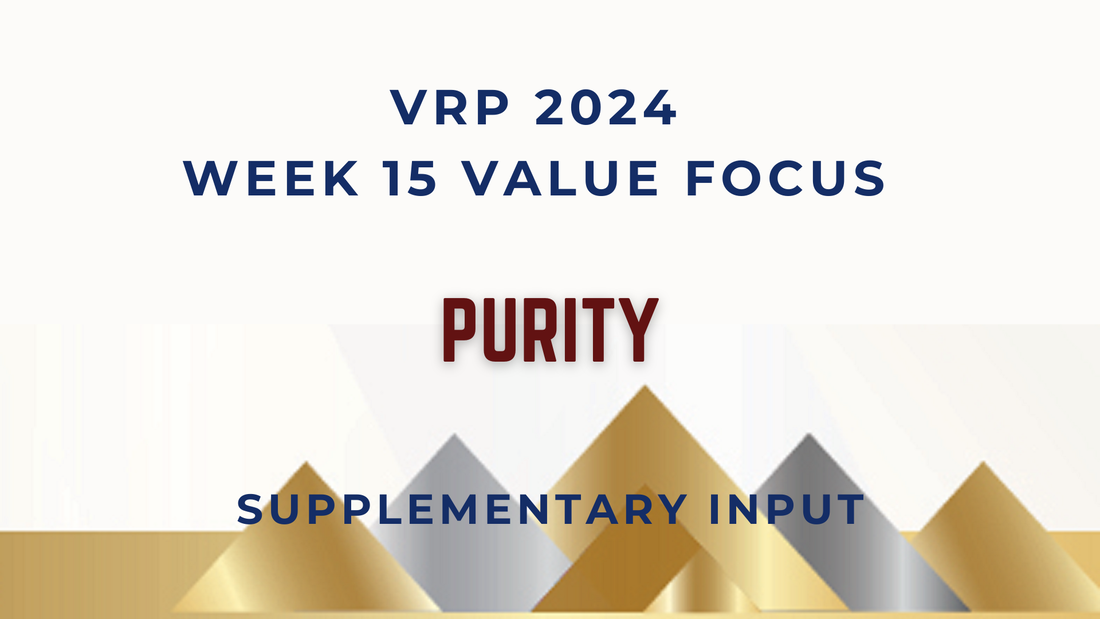
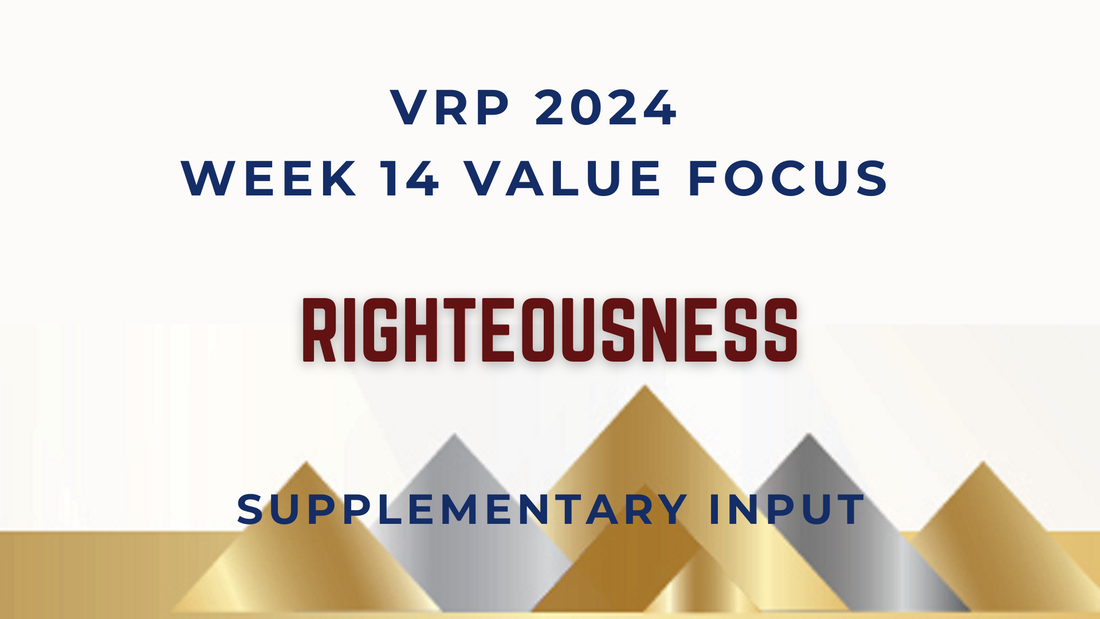
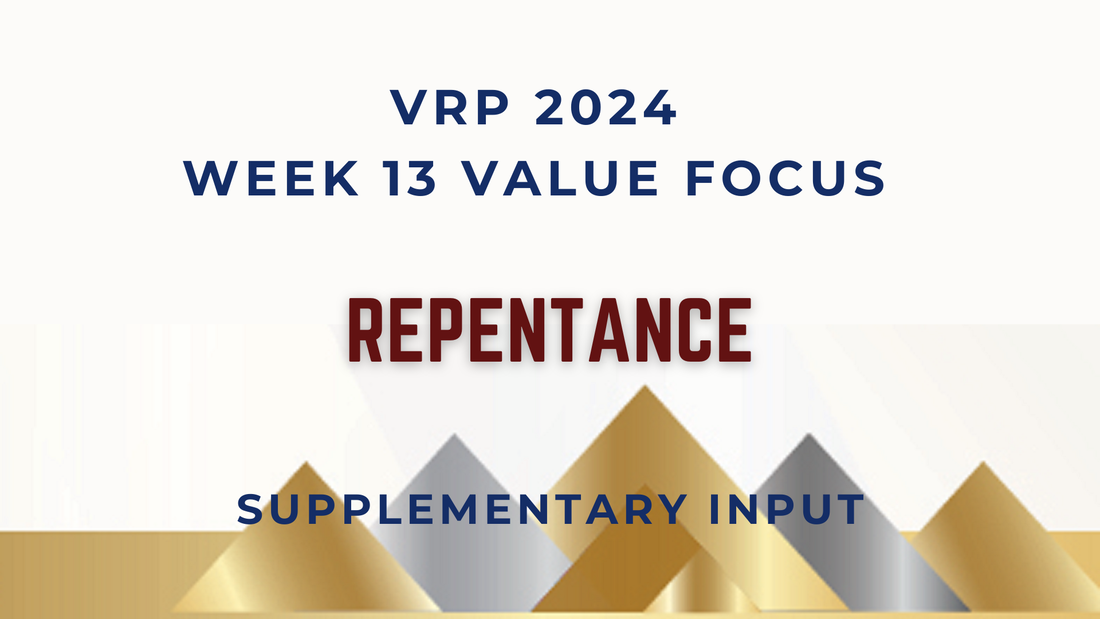
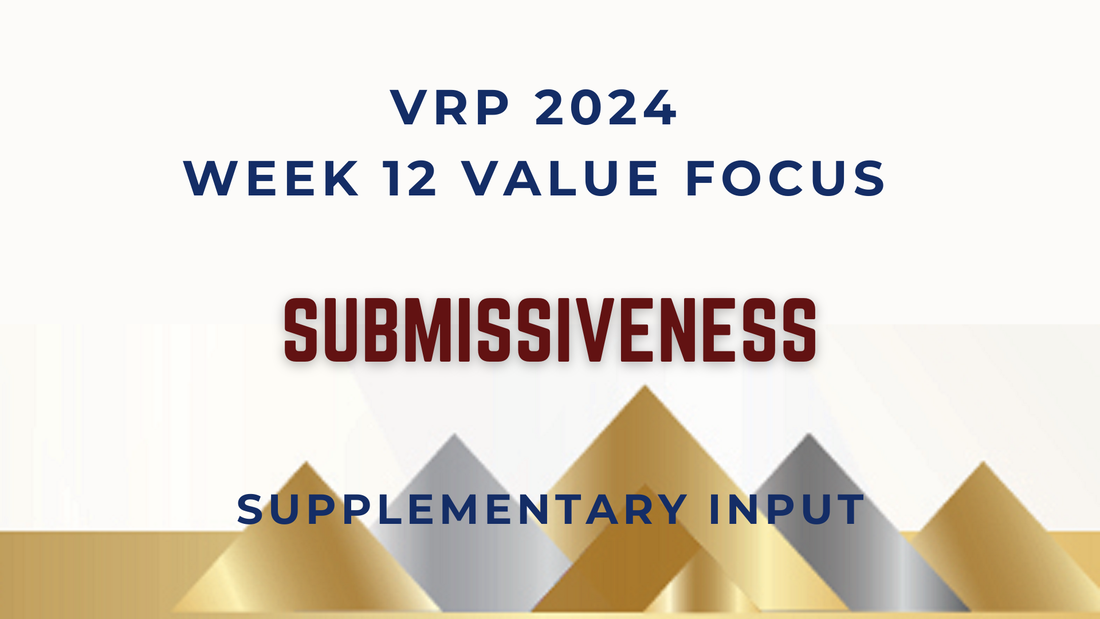
 RSS Feed
RSS Feed
